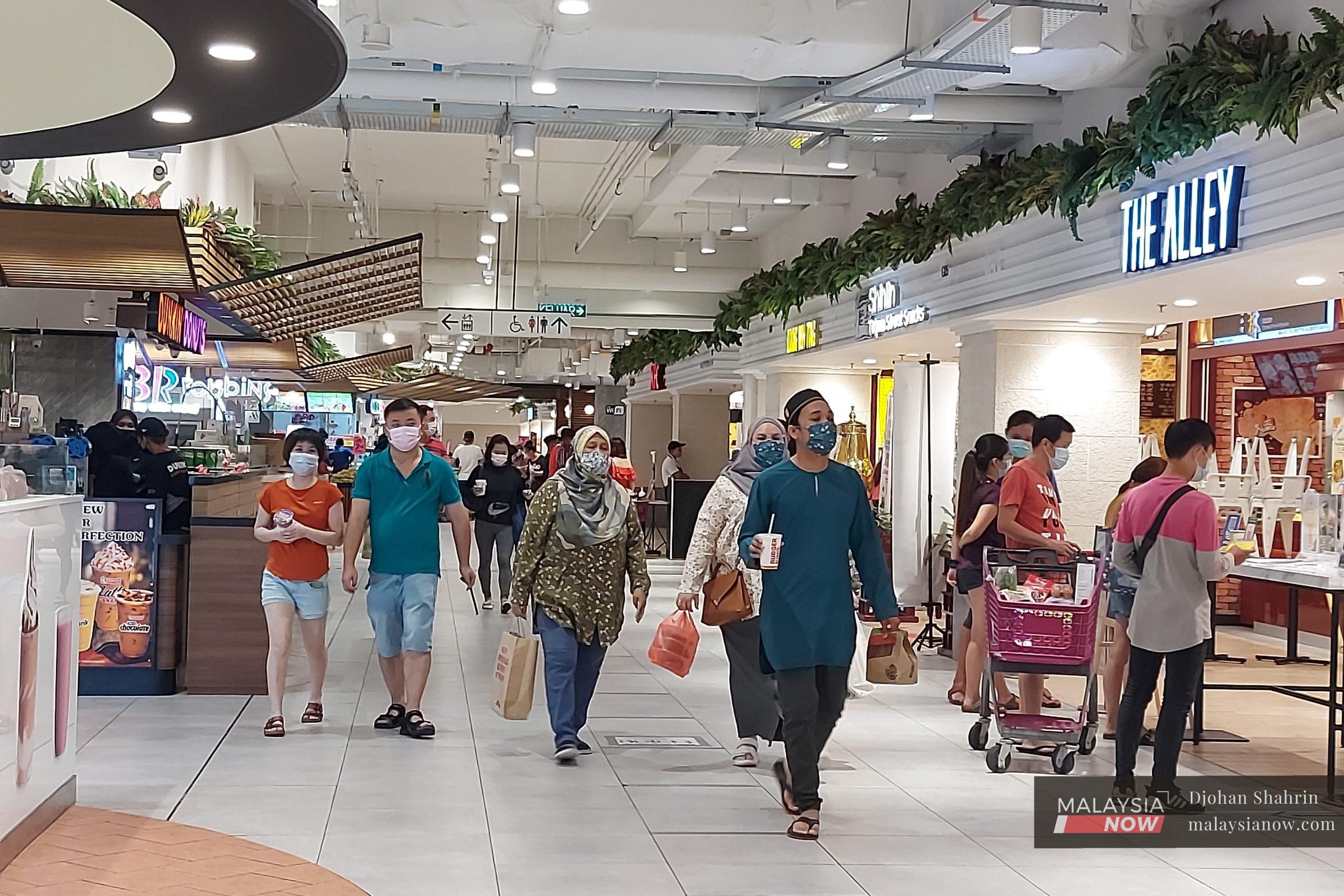Middle class money problems will hurt too, economists warn
A drop in the spending power of the M40 will have repercussions for the local economy although they may not need as much assistance as the B40.
Just In
Economists have warned of a trickle-down effect on society if the financial woes of the middle class or M40 go unaddressed, as the government continues to roll out stimulus packages aimed largely at cushioning the impact of the Covid-19 pandemic for those in the lower-income category.
Yeah Kim Leng, a professor at Sunway University, said those in the M40 group who have lost their jobs and have dependents and large financial obligations such as house or car loans would in fact find themselves facing a similar situation as those in B40 households.
“The unemployed urban youths could have their families to fall back on, but for the heads of M40 households that have landed in misfortune caused by the pandemic, the extended family support may be absent,” he said.
This could see them forced to resort to loan sharks in the absence of government aid, he said.
The M40 or middle 40% is defined as those who earn a monthly income of RM4,850 to RM10,959. The B40 or bottom 40% are those who earn less than RM4,849 while the T20 or top 20% earn over RM10,959 a month.
While government aid under initiatives such as Penjana and Pemerkasa Plus has come as a welcome relief for the poor, those in the middle class who have been retrenched or suffered pay cuts due to the economic pounding inflicted by the pandemic are struggling as well.
Yeah said for them, finding a new job or income-generating opportunities is “essential, especially if they are not covered by the employment insurance scheme”.
He suggested job matching, retraining, upskilling and entrepreneurship programmes to help them rebuild their livelihoods, as well as the promotion of domestic and foreign investment activities.
Baayah Baba, a senior lecturer at Universiti Teknologi Mara, said a failing middle class would have a heavy impact on the local economy.
Speaking to MalaysiaNow, she said many of the things paid for by the M40 like daycare expenses, mortgages, higher education and even entertainment contribute to economic growth.
“If things keep going downhill, they will have to fork out their life savings and spend less.
“This will affect the GDP,” she said. “As their spending power decreases, we may see shops and stalls going out of business.”
She said dollar stores, which have been mushrooming across the country, are one signal that the middle class is shrinking, and welcomed the extension of the loan moratorium for the M40, saying this would alleviate their burden and help release their spending power into the economy.
But Calvin Cheng, an economist at the Institute of Strategic and International Studies, played down concerns of a long-term impact on M40 spending.
“The impacts of the pandemic were mostly concentrated in lower-income households and among lower-wage workers, so the decline in spending by the middle-income households is likely not severe,” he said.
“Savings rates may inch up but in general I think as lockdown restrictions ease, spending by middle and higher-income households will continue to increase.”
He also cautioned against giving the same amount of government assistance to both the B40 and M40 groups.
“We would definitely want to focus assistance on those on the lower end of the household income scale,” he said.
He added that government initiatives like i-Sinar and i-Lestari as well as income tax cuts tend to help the middle-income and upper middle-income households more as they have more EPF savings and earn enough to benefit from income tax reductions.
He suggested greater fiscal action including an expansion of government spending on programmes such as Bantuan Sara Hidup or Bantuan Prihatin Rakyat, as well as infrastructure spending.
“Through this, economic recovery will be more equitable for the middle class and for all Malaysians,” he said.
Subscribe to our newsletter
To be updated with all the latest news and analyses daily.
